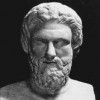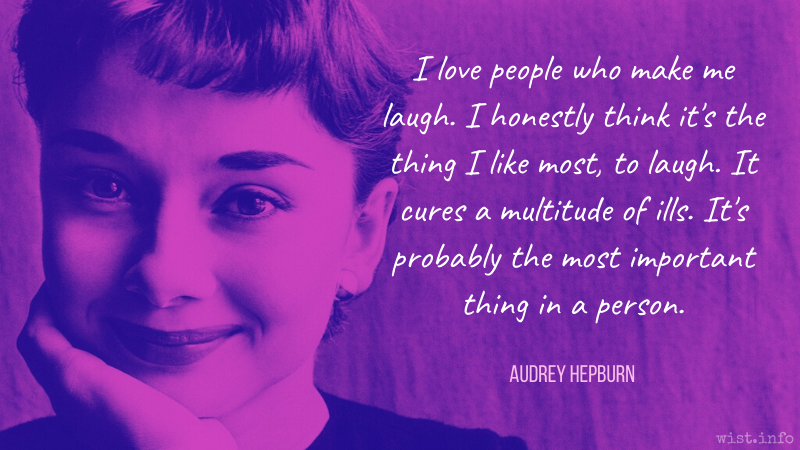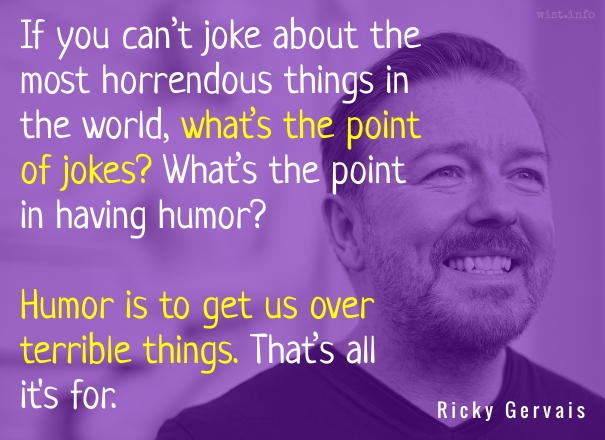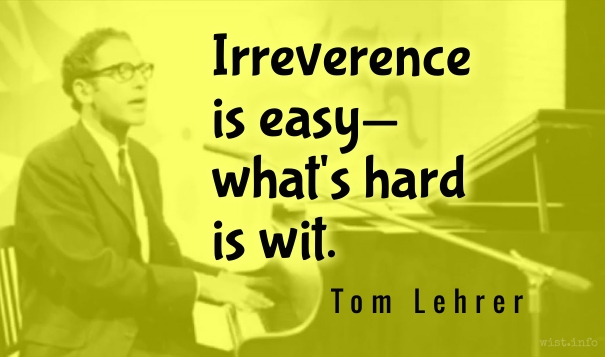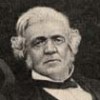But the power
of a man’s will is often powerless:
laughter and tears follow so close upon
the passions that provoke them that the more
sincere the man, the less they obey his will.
[Ma non può tutto la virtù che vuole;
ché riso e pianto son tanto seguaci
a la passion di che ciascun si spicca,
che men seguon voler ne’ più veraci.]Dante Alighieri (1265-1321) Italian poet
The Divine Comedy [Divina Commedia], Book 2 “Purgatorio,” Canto 21, l. 105ff (21.105-108) (1314) [tr. Musa (1981)]
(Source)
(Source (Italian)). Alternate translations:
As each alternate Passion leaves a trace
On the still-varying muscles of the face,
Fictitious oft; but, by the candid mind,
Conceal'd with pain, the dawn of dubious joy
My features wore.
[tr. Boyd (1802), st. 20]
But the power which wills,
Bears not supreme control: laughter and tears
Follow so closely on the passion prompts them,
They wait not for the motions of the will
In natures most sincere.
[tr. Cary (1814)]
But will is not with power entire endued.
Laughter and tears pursue so much the trace
The passion dictates that imprints them there,
Nor follow will in natures most sincere.
[tr. Bannerman (1850)]
But yet the power that wills cannot do all things;
For tears and laughter are such pursuivants
Unto the passion from which each springs forth,
In the most truthful least the will they follow.
[tr. Longfellow (1867)]
But virtue cannot all it would; for laughter and tears follow so much the passion from which each springs, that they least obey will in the most truthful men.
[tr. Butler (1885)]
But all it wishes, will cannot forbear:
For smiles and tears to diverse passion wed,
Upon that passion follow so instinct.
In open natures, will is quite outsped.
[tr. Minchin (1885)]
But the power that wills cannot do everything; for smiles and tears are such followers on the emotion from which each springs, that in the most truthful they least follow the will.
[tr. Norton (1892)]
But the virtue which wills is not all powerful;
for laughter and tears follow so closely the passion from which each springs, that they least obey the will in the most truthful.
[tr. Okey (1901)]
But the power to will cannot do all, for laughter and tears are so close followers on the passions from which they spring that they least follow the will in the most truthful.
[tr. Sinclair (1939)]
But all is not done by the will's decree;
For on the passion wherefrom each is bred
Laughter and tears follow so close that least
In the most truthful is the will obeyed.
[tr. Binyon (1943)]
But will with us is not made one with power;
Tears, laughter, tread so hard upon the heel
Of their evoking passions, that in those
Who're most sincere they least obey the will.
[tr. Sayers (1955)]
But man's will
is not supreme in every circumstance:
for tears and laughter come so close behind
the passions they arise from, that they least
obey the will of the most honest mind.
[tr. Ciardi (1961)]
But the power that wills cannot do everything; for smiles and tears are such close followers on the emotion from which each springs, that in the most truthful they least follow the will.
[tr. Singleton (1973)]
But virtue cannot do everything that it will;
For laughter and tears follow so closely on
The passions from which they respectively proceed,
That they follow the will least in the most truthful.
[tr. Sisson (1981)]
And yet the power of the will cannot do all,
for tears and smiles are both so faithful to
the feelings that have prompted them that true
feeling escapes the will that would subdue.
[tr. Mandelbaum (1982)]
But the power of the will cannot do everything,
for laughter and weeping follow so closely on the passion from which each springs that they follow the will least in those who are most truthful.
[tr. Durling (2003)]
But the virtue that wills is not all-powerful, since laughter and tears follow the passion, from which they spring, so closely, that, in the most truthful, they obey the will least.
[tr. Kline (2002)]
But will power can't do everything it wills.
For tears and laughter follow on so close
to those emotions from which each act springs
that these least follow will in those most true.
[tr. Kirkpatrick (2007)]
But the power that wills cannot do all it wills,
for laughter and tears so closely follow feelings
from which they spring, they least can be controlled
in those who are most truthful.
[tr. Hollander/Hollander (2007)]
But will alone won't stop a human being,
Since laughter and tears are deeply interwoven,
Following hard on emotions which spring them forth,
And when they're truthful have little to do with the will.
[tr. Raffel (2010)]
Quotations about:
humor
Note not all quotations have been tagged, so Search may find additional quotes on this topic.
Care to our coffin adds a nail, no doubt;
And every grin, so merry, draws one out.John Wolcot (1738-1819) English satirist (pseud. Peter Pindar)
Expostulatory Odes to a Great Duke and a Little Lord, Ode 15, ll. 5-6 (1789)
(Source)
For what do we live, but to make sport for our neighbors and laugh at them in our turn?
Haste thee, Nymph, and bring with thee
Jest, and youthful Jollity,
Quips, and Cranks, and wanton Wiles,
Nods, and Becks, and wreathed Smiles,
Such as hang on Hebe’s cheek,
And love to live in dimple sleek;
Sport that wrinkled Care derides,
And Laughter holding both his sides.
Laughter is poison to fear.
George R. R. Martin (b. 1948) American author and screenwriter [George Raymond Richard Martin]
A Game of Thrones, “Catelyn” 8 [Catelyn Stark] (1996)
(Source)
I don’t think I ever hurt any man’s feelings by my little gags. I know I never willfully did it. When I have to do that to make a living I will quit.
A serious and good philosophical work could be written consisting entirely of jokes.
Ludwig Wittgenstein (1889-1951) Austrian-English philosopher
Quoted in Norman Malcolm, Ludwig Wittgenstein: A Memoir (1958)
(Source)
This is usually presented as a direct quotation, but is perhaps a paraphrase. The full passage from Malcolm:
It is worth noting that Wittgenstein once said that a serious and good philosophical work could be written that would consist entirely of jokes (without being facetious).
Nothing is more curious than the almost savage hostility that Humour excites in those who lack it.
George Saintsbury (1845-1933) English literary critic, scholar, historian, journalist
In Revival: A Last Vintage (1950)
(Source)
When it gets down to having to use violence, then you are playing the system’s game. The establishment will irritate you — pull your beard, flick your face — to make you fight. Because once they’ve got you violent, then they know how to handle you. The only thing they don’t know how to handle is non-violence and humor.
John Lennon (1940-1980) English rock musician, singer, songwriter
Interview, Bed-Ins for Peace, Montreal, Canada (1 Jun 1969)
(Source)
Unless a thing is dignified, it cannot be undignified. Why is it funny that a man should sit down suddenly in the street? There is only one possible or intelligent reason: that man is the image of God. It is not funny that anything else should fall down; only that a man should fall down. No one sees anything funny in a tree falling down. No one sees a delicate absurdity in a stone falling down. No man stops in the road and roars with laughter at the sight of the snow coming down. The fall of thunderbolts is treated with some gravity. The fall of roofs and high buildings is taken seriously. It is only when a man tumbles down that we laugh. Why do we laugh? Because it is a grave religious matter: it is the Fall of Man. Only man can be absurd: for only man can be dignified.
Gilbert Keith Chesterton (1874-1936) English journalist and writer
“Spiritualism,” All Things Considered (1908)
(Source)
Nor ought you ever to laugh at any joke or smart saying of your own; for you will be thought to applaud your own wit. It belongs to the company, and not to him who says a good thing, to express their approbation by a laugh.
[Né de’ tuoi medesimi motti voglio che tu ti rida, che è un lodarti da te stesso: egli tocca di ridere a chi ode, e non a chi dice.]
Giovanni della Casa (1503-1556) Florentine poet, author, diplomat, bishop
Galateo: Or, A Treatise on Politeness and Delicacy of Manners [Il Galateo overo de’ costumi], ch. 30 (1558) [tr. Graves (1774)]
(Source)
(Source (Italian)). Alternate translations:
But a man must beware he doe not laughe at his owne gestes, and his doings. For that makes men weene hee woulde faine praise him selfe. It is for other men to laughe that heare, and not for him that telles the tale.
[tr. Peterson (1576)]
And I do not want you to laugh at your own jokes, for it is a type of self-praise. It is the hearer who should laugh, not the speaker.
[tr. Eisenbichler/Bartlett (1986)]
The question of laughter lies with the hearer, not with the narrator.
[Source]
It is characteristic of all deep human problems that they are not to be approached without some humor and some bewilderment.
Freeman Dyson (1923-2020) English-American theoretical physicist, mathematician, futurist
Disturbing the Universe, ch. 1 (1979)
(Source)
The gifts and the lessons my father left me will last forever: Never take yourself too seriously, never miss a chance to laugh long and hard, speak out about political and social issues you believe in, use the written word as often as you can to make yourself and the world a better place, and love your children with all you’ve got.
Rod Serling (1924-1975) American screenwriter, playwright, television producer, narrator
Paraphrase of Rod Serling in Anne Serling, As I Knew Him: My Dad, Rod Serling, Epilogue (2013)
(Source)
We cannot really love anybody with whom we never laugh.
Agnes Repplier (1855-1950) American writer
“Goodness and Gayety,” Americans and Others (1912)
(Source)
Note: Though this is usually attributed to Repplier, she precedes the phrase with "It has been wisely said that ..."
Given the disaster Russian history has been more or less continuously for the last five centuries, its humor is of the darkest, most extreme kind. Russian humor is to ordinary humor what backwoods fundamentalist poisonous snake handling is to a petting zoo. Russian humor is slapstick, only you actually die.
Ian Frazier (b. 1951) American writer and humorist
“A Strangely Funny Russian Genius,” New York Review of Books (7 May 2015)
(Source)
Reviewing books by Russian writer Daniil Kharms.
If you are a person who looks at the funny side of things, then sometimes when you are lowest, when everything seems totally hopeless, you will come up with some of your best ideas. Happiness does not create humor. There’s nothing funny about being happy. Sadness creates humor.
Charles Schulz (1922-2000) American cartoonist
“On Staying Power,” My Life with Charlie Brown (2010) [ed. Inge]
(Source)
Remember, that the wit, humor, and jokes of most mixed companies are local. They thrive in that particular soil, but will not often bear transplanting. Every company is differently circumstanced, has its particular cant, and jargon; which may give occasion to wit and mirth, within that circle, but would seem flat and insipid in any other, and therefore will not bear repeating.
Lord Chesterfield (1694-1773) English statesman, wit [Philip Dormer Stanhope]
Letter to his son, #167 (29 Oct 1748)
(Source)
Without laughter life on our planet would be intolerable. So important is laughter to us that humanity highly rewards members of one of the most unusual professions on earth, those who make a living by inducing laughter in others. This is very strange if you stop to think of it: that otherwise sane and responsible citizens should devote their professional energies to causing others to make sharp, explosive, barking-like exhalations.
Steve Allen (1922-2000) American composer, entertainer, and wit.
Funny People, Introduction (1981)
(Source)
Humor is the most honest of emotions. Applause for a speech can be insincere, but with humor, if the audience doesn’t like it there’s no faking it.
Robert Orben (b. 1927) American comedy writer, magician, speechwriter
In “A Little Night Humor,” Washington Post (28 Jan 1982)
(Source)
Thou canst not joke an Enemy into a Friend; but thou may’st a Friend into an Enemy.
Benjamin Franklin (1706-1790) American statesman, scientist, philosopher, aphorist
Poor Richard’s Almanack (Apr 1739)
(Source)
Behold the hippopotamus!
We laugh at how he looks to us,
And yet in moments dank and grim,
I wonder how we look to him.
Among other things I think humor is a shield, a weapon, a survival kit. Not only has this brief span of ours been threatened by such perils not of our making such as fire and flood, Tyrannosaurus Rex, the black death, and hurricanes named after chorus girls, but we have been most ingenious in devising means for destroying each other, a habit we haven’t yet learned how to kick.
So here we are several billion of us, crowded into our global concentration camp for the duration. How are we to survive? Solemnity is not the answer, any more than witless and irresponsible frivolity is. I think our best chance lies in humor, which in this case means a wry acceptance of our predicament. We don’t have to like it but we can at least recognize its ridiculous aspects, one of which is ourselves.
Ogden Nash (1902-1971) American poet
Commencement address at his daughter Linell’s boarding school
(Source)
Quoted in Douglas M. Parker, Dana Giaoia, Ogden Nash: The Life and Work of America's Laureate of Light (2005).
There are three things which are real: God, human folly, and laughter. Since the first two pass our comprehension, we must do what we can with the third.
Aubrey Menen (1912-1989) British writer, novelist, satirist, theatre critic
Rama Retold, Book 3, ch. 7 [Valmiki] (1954)
(Source)
This book is a modern retelling of part of the Ramayana.
A variant of this was inscribed on a silver beer mug given on a gift that President John F Kennedy gave to David Powers:
There are three things which are real:
God, human folly and laughter.
The first two are beyond our comprehension
So we must do what we can with the third.
Everything is funnier in retrospect, funnier and prettier and cooler. You can laugh at anything from far enough away.
Chuck Palahniuk (b. 1962) American novelist and freelance journalist
Stranger Than Fiction: True Stories, “Consolation Prizes” (2004)
(Source)
Thare would be a grate supply ov wit and humor in this world, if we would only giv others the same credit for being witty that we claim for ourselfs.
[There would be a great supply of wit and humor in this world, if we would only give others the same credit for being witty that we claim for ourselves.]
Josh Billings (1818-1885) American humorist, aphorist [pseud. of Henry Wheeler Shaw]
Everybody’s Friend, Or; Josh Billing’s Encyclopedia and Proverbial Philosophy of Wit and Humor, “Mollassis Kandy” (1874)
(Source)
There is no possibility of being witty without a little ill-nature; the malice in a good thing is the barb that makes it stick.
Richard Brinsley Sheridan (1751-1816) Irish dramatist, satirist, politician
The School for Scandal, Act 1 (1777)
(Source)
DICAEPOLIS: Comedy too can sometimes discern what is right. I shall not please, but I shall say what is true.
Aristophanes (c. 450-c. 388 BC) Athenian comedic playwright
Acharnians, ll. 500-501 (425 BC) [tr. Athenian Society (1912)]
(Source)
I believe in aristocracy, though — if that is the right word, and if a democrat may use it. Not an aristocracy of power, based upon rank and influence, but an aristocracy of the sensitive, the considerate and the plucky. Its members are to be found in all nations and classes, and all through the ages, and there is a secret understanding between them when they meet. They represent the true human tradition, the one permanent victory of our queer race over cruelty and chaos. Thousands of them perish in obscurity, a few are great names. They are sensitive for others as well as for themselves, they are considerate without being fussy, their pluck is not swankiness but the power to endure, and they can take a joke.
I love people who make me laugh. I honestly think it’s the thing I like most, to laugh. It cures a multitude of ills. It’s probably the most important thing in a person.
Audrey Hepburn (1929-1993) Belgian-English actress
“Hepburn Heart,” Interview with Dominick Dunne, Vanity Fair (May 1991)
(Source)
A faint smile hovered around the man’s lips. It was the sort of smile that lies on sandbanks waiting for incautious swimmers.
Laugh if you are wise, O girl, laugh.
[Ride, si sapis, o puella, ride.]
Martial (AD c.39-c.103) Spanish Roman poet, satirist, epigrammatist [Marcus Valerius Martialis]
Epigrams [Epigrammata], Book 2, epigram 41 (2.41.1) (AD 86) [tr. Ker (1919)]
(Source)
"To Maximina." (Source (Latin)).
Martial says he thinks he's quoting Ovid, but it aligns with nothing known or still extant from that poet. As the phrase is hendecasyllabic, and Ovid is not known to have published anything in that meter, it is at the very least believed a paraphrase. It is still usually credited as a fragment for Ovid. It's ironic, since it is the point of this Martial epigram, that in Ars Amatoria 3.279ff, Ovid warns against laughing if one's teeth are bad; see Williams for more discussion.
Alternate translations:
Laugh, my girl, laugh, if you bee wise.
[16th C Manuscript]
Laugh, lovely maid, laugh oft, if thou art wise.
[tr. Killigrew (1695)]
Laugh, my pretty damsel, laugh;
If thou'rt cunning, but by half.
[tr. Elphinston (1782), Book 6, Part 3, ep. 8]
Smile, O damsel, if you are wise, smile.
[tr. Amos (1858), ch. 3, ep. 101]
Laugh if thou art wise, girl, laugh.
[tr. Bohn's Classical (1859)]
Laugh if you are wise, girl, laugh
[tr. Bohn's Classical (1871)]
Laugh, if thou be wise.
[ed. Harbottle (1897)]
Laugh, maiden, laugh, if thou be wise.
[tr. Pott & Wright (1921)]
Smile, maiden, smile.
[tr. Francis & Tatum (1924), ep. 86]
Laugh, girl, laugh if you're sensible.
[tr. Bovie (1970)]
Laugh if you have any sense, girl, laugh.
[tr. Shackleton Bailey (1993)]
Laugh, girl; if you're clever, laugh!
[tr. Williams (2004)]
I have found throughout my life that, if all else fails, the character of a man can be recognized by nothing so surely as by a jest which he takes badly.
“John has warned me that you are a jokester. Well, I am not. If we are to have any kind of successful association, you’d best understand right now that I do not enjoy humor. Whether or not successful.”
“Okay if now and then I enjoy a wry, inward smile if struck by one of life’s vagaries?”
It is part of the price of leadership of this great and free nation to be the target of clever satirists. You have given the gift of laughter to our people. May we never grow so somber or self-important that we fail to appreciate the humor in our lives.
I have observed that in comedies the best actor plays the droll, while some scrub rogue is made the fine gentleman or hero. Thus it is in the farce of life. Wise men spend their time in mirth, ’tis only fools who are serious.
It’s probably wrong to believe there can be any limit to the horror which the human mind can experience. On the contrary, it seems that some exponential effect begins to obtain as deeper and deeper darkness falls — as little as one may like to support the idea that when the nightmare grows black enough, horror spawns horror, one coincidental evil begets other, often more deliberate evils, until finally blackness seems to cover everything.
And the most terrifying question of all may be just how much horror the human mind can stand and still maintain a wakeful, staring, unrelenting sanity. That such events have their own Rube Goldberg absurdity goes almost without saying. At some point, it all starts to become rather funny. That may be the point at which sanity begins either to save itself or to buckle and break down; that point at which one’s sense of humor begins to reassert itself.
If you can’t joke about the most horrendous things in the world, what’s the point of jokes? What’s the point in having humor? Humor is to get us over terrible things. That’s all it’s for. That’s why you should laugh at funerals. Of course it’s the wrong thing to say. That’s why it’s funny.
Ricky Gervais (b. 1961) English comedian, actor, director, writer
Interview with Chris Heath, GQ (15 May 2013)
(Source)
POLONIUS: Brevity is the soul of wit.
William Shakespeare (1564-1616) English dramatist and poet
Hamlet, Act 2, sc. 2, l. 97 (2.2.97) (c. 1600)
(Source)
In full, from the least brief-speaking character in the play:
Therefore, since brevity is the soul of wit,
And tediousness the limbs and outward flourishes,
I will be brief ...."
Wit lies in recognizing the resemblance among things which differ and the difference between things which are alike.
[L’esprit consiste à connaître la ressemblance des choses diverses et la différence des choses semblables.]
Alas, irreverence has been subsumed by mere grossness, at least in the so-called mass media. What we have now — to quote myself at my most pretentious — is a nimiety of scurrility with a concomitant exiguity of taste. For example, the freedom (hooray!) to say almost anything you want on television about society’s problems has been co-opted (alas!) by the freedom to talk instead about flatulence, orgasms, genitalia, masturbation, etc., etc., and to replace real comment with pop-culture references and so-called “adult” language. Irreverence is easy — what’s hard is wit.
Men are contented to be laughed at for their wit, but not for their folly.
Jonathan Swift (1667-1745) English writer and churchman
“Thoughts on Various Subjects” (1706)
(Source)
But finally, there is one other quality I would mention among these that I believe will fit you for difficult and important posts. This is a healthy and lively sense of humor.
For telling a good and incisive religious joke, you should be praised. For telling a bad one, you should be ridiculed and reviled. The idea that you could be prosecuted for the telling of either is quite fantastic.
Rowan Atkinson (b. 1955) English actor, comedian, and screenwriter
Letter to The Times of London (Oct 2001)
(Source)
Regarding proposed legislation outlaw "incitement to religious hatred."
Humor can be dissected, as a frog can, but the thing dies in the process and the innards are discouraging to any but the purely scientific mind.
E. B. White (1899-1985) American author, critic, humorist [Elwyn Brooks White]
“The Preaching Humorist,” The Saturday Review of Literature (1941-10-18) [with Katherine White]
(Source)
The apparent origin of "Analyzing humor is a bit like dissecting a frog: You learn how it works but you end up with a dead frog" (and variants).
Also attributed to Mark Twain (not found in his writing) and André Maurois (who said something similar in 1960). See here for more discussion.
As nothing is more provoking to some tempers than raillery, a prudent person will not always be satirically witty where he can, but only where he may without offence. For he will consider the that the finest stroke of raillery is but a witticism; and that there is hardly any person so mean, whose good will is not preferable to the pleasure of a horse-laugh.
James Burgh (1714-1775) British politician and writer
The Dignity of Human Nature, Sec. 5 “Miscellaneous Thoughts on Prudence in Conversation” (1754)
(Source)





























